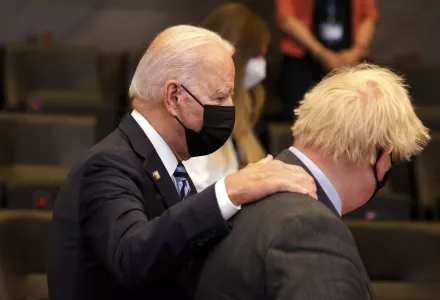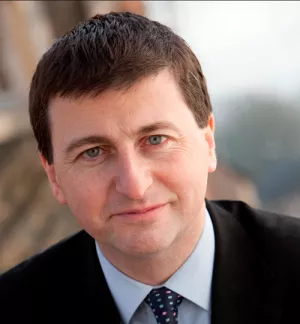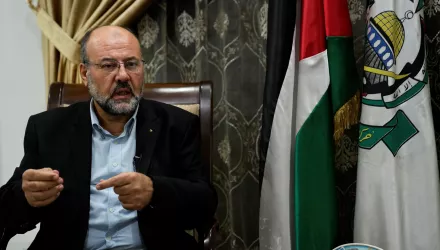
There are two immediate opportunities to work together again on issues that matter to both the United States and the world.
LONDON — The horror of the terrorist attacks of 9/11, which happened 20 years ago this week, is seared on memories here in Britain as well as America.
Back then, I was a minister in Tony Blair’s British government. And, within hours of the attack on the twin towers, our prime minister pledged that we would “stand shoulder to shoulder with our American friends.”
His words reflected not only the bonds of history and family between our countries but also our shared values of freedom and democracy that we judged unbreakable.
Nor did the United Kingdom offer merely friendship and words. More than 150,000 members of the British Armed Forces have served in Afghanistan over the past 20 years as part of an international coalition determined to prevent Al Qaeda from launching further terrorist attacks.
As a government minister, I visited Afghanistan regularly, where I witnessed for myself the courage and cooperation of our two nations’ military personnel.
A total of 454 British service members never came home, with thousands of others suffering life-changing injuries, seen and unseen.
Such a scale of sacrifice helps explain the anguish and anger with which President Biden’s chaotic withdrawal has been greeted here.
That your president did not speak to a single NATO leader before ordering the exit speaks volumes about just how much wider the Atlantic feels now than 20 years ago. Right now, it doesn’t feel like “America is back” so much as “America has turned its back.” The president’s decision to disregard, if not discard, allies so carelessly is all the more inexplicable when the lens shifts from the last 20 years to the next.
Over the coming decades, the defining struggle for America will not be confronting radical Islamism, but responding to the real challenge China represents — economically, technologically, and ideologically — to the West.
The United States should not try to face this on its own. If the contest with China is bilateral, America is at an immediate disadvantage. If the contest is multilateral, America has much greater strength. But, if America’s allies are going to matter more than ever, it is vital that trust be rebuilt from London all the way to Canberra.
Confidence in the United States has been shaken badly in recent years, not least by the antics of Donald Trump.
Fortunately, there are two immediate opportunities to work together again in ways that would never have happened with Trump and on issues that matter massively to both the United States and the world.
First, we’re now in a race between COVID-19 vaccines and COVID variants. The World Health Organization estimates the world needs 11 billion vaccines. The G7 summit in June promised fewer than one billion. The United States should work with allies this fall to fund, produce, and distribute all the vaccines the world needs. This is strategically vital as much as it is epidemiologically and morally the right thing to do; it is an airlift everyone could and would support
Second, dangerous climate change is affecting us all, as must surely be apparent to anyone watching and experiencing the devastation wrought by forest fires and hurricanes in America or floods in Europe. In less than two months, world leaders will gather in Glasgow for the United Nations Climate Change Conference, and the United States, standing shoulder to shoulder with its allies, must make good on the $100 billion already promised to support the needs of developing countries. Meeting this promise is the key that can unlock climate negotiations and get the world on the road to net zero.
It is 20 years since our countries’ friendship was tested and strengthened by 9/11. Now is the time to rebuild that alliance for the sake of peace and security in not only America but the whole world.
Douglas Alexander is a senior fellow at Harvard University’s Belfer Center and a former United Kingdom government minister.
Alexander, Douglas. “How the U.S. Should Reestablish Trust With Its Allies.” The Boston Globe, September 8, 2021



